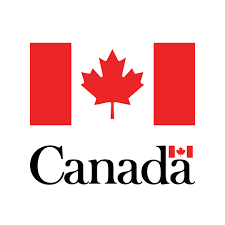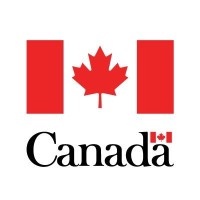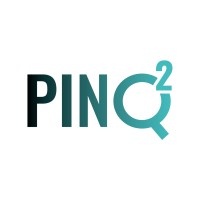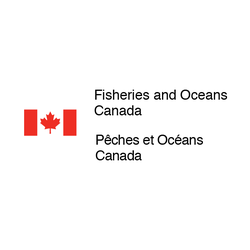
Vehicle theft prevention
At a glance
- Maximum amount : 150,000 $
- Open Date : August 14, 2024
- Closing date : September 25, 2024
- Professional, scientific and technical services
- Canada
- For-profit business
- All revenue ranges
- 499 employees maximum
- Startups
Overview
The Innovative Solutions Canada - Vehicle Theft Prevention grant, with a maximum funding amount of $150,000 for Phase 1, aims to support small Canadian businesses in developing new or significantly enhanced electrical or electromechanical solutions to deter and prevent vehicle theft. Eligible activities include proof of feasibility projects within technology readiness levels 1-4.
Activities funded
This grant supports projects focused on innovative solutions to prevent vehicle theft. The eligible activities must demonstrate technical feasibility, affordability, and effectiveness against specific vehicle theft methods.
- Development of electrical or electromechanical products designed to deter relay attacks and key programming thefts.
- Creation of affordable and easy-to-install aftermarket solutions for vehicle theft prevention.
- Solutions that operate effectively in diverse Canadian weather conditions and geographical locations.
- Proposals ensuring that innovations comply with Canadian safety standards and do not interfere with vehicle systems.
Eligibility
Solution proposals can only be submitted by a small business that meets all of the following criteria:
- for profit
- incorporated in Canada (federally or provincially)
- 499 or fewer full-time equivalent (FTE) employees
- research and development activities that take place in Canada
- 50% or more of its annual wages, salaries and fees are currently paid to employees and contractors who spend the majority of their time working in Canada
- 50% or more of its FTE employees have Canada as their ordinary place of work
- 50% or more of its senior executives (Vice President and above) have Canada as their principal residence
Who is eligible?
This grant is open to small businesses in Canada that focus on innovation and have the capability to submit proposals for Proof of Feasibility phases in response to challenges outlined by the Canadian government.
- For-profit small businesses.
- Incorporated in Canada, either federally or provincially.
- Maintain 499 or fewer full-time equivalent (FTE) employees.
- Conduct research and development activities within Canada.
- Have at least 50% of annual wages, salaries, and fees paid to employees and contractors primarily working in Canada.
- Ensure that at least 50% of FTE employees have Canada as their ordinary place of work.
- At least 50% of senior executives (Vice President level and above) reside in Canada.
Eligible expenses
The grant is aimed at encouraging Canadian innovators to propose solutions that deter and prevent vehicle theft through new electrical or electromechanical innovations. Eligible projects should fall under the category of Proof of Feasibility and adhere to the specified technological readiness levels.
- Projects that develop low-cost and effective electrical or electromechanical innovations for vehicles to combat theft.
- Innovation projects designed for cars, SUVs, and trucks weighing under 4,536 kilograms.
- Projects focused on creating commercially viable and affordable vehicle security solutions.
- Development of easy-to-install aftermarket solutions that function in diverse Canadian climatic conditions.
- Technological innovations that do not interfere with vehicle safety or void manufacturer warranties.
Eligible geographic areas
This grant is available to businesses incorporated in Canada. Eligible companies must be located within the country to apply for this funding opportunity.
- Companies incorporated federally in Canada.
- Organizations incorporated provincially within any Canadian province or territory.
Selection criteria
The evaluation and selection of projects for this grant are based on specific criteria with allocated point scores to ensure alignment with the grant’s objectives.
- Question 1a: Scope - Pass/Fail
- Question 2: Current Technology Readiness Level (TRL) - Pass/Fail
- Question 3a: Innovation - Pass/Fail
- Question 3b: Advance on State of the Art - Pass/Fail + Points (0, 5, 12, or 20 points)
- Question 1b: Scope (Additional Outcomes) - Points (0, 3, 6, or 10 points)
- Question 4: Phase 1 Science and Technology (S&T) Risks - Points (0, 5, or 10 points)
- Question 5: Phase 1 Project Risks - Points (0, 5, or 10 points)
- Question 6: Phase 1 Project Plan - Points (0, 10, or 20 points)
- Question 7: Phase 1 Implementation Team - Points (0, 10, or 20 points)
- Question 8: Inclusivity - Points (0, 10, or 20 points)
- Question 9: Phase 1 Financial Controls, Tracking and Oversight - Points (0, 5, or 10 points)
- Question 10: Phase 2 Overview - Points (0, 5, or 10 points)
How to apply
Create an Account and Log In
- Visit the official grant application portal.
- Create an account if you do not already have one.
- Log in to access the application submission form and view your submissions.
Prepare Your Proposal
- Read and understand the Challenge Notice along with the Grant Instructions and Procedures document.
- Ensure your innovation is within the scope and meets all essential outcomes listed under the Desired Outcomes section.
- Compile a comprehensive proposal addressing all evaluation criteria including innovation, advancements, and risks.
Complete the Challenge Stream Submission Form
- Detail the innovation scope, current Technology Readiness Level, and how the solution advances existing technology.
- Outline scientific basis, project risks, and mitigation strategies.
- Prepare an inclusivity plan highlighting engagement of under-represented groups.
- Describe your financial controls and oversight mechanisms for effective fund management.
- Fill in details for Phase 2 overview if selected, including tasks and resource allocations.
Submit Your Application
- Review the completed submission form for accuracy.
- Submit the proposal via the online portal before the deadline.
- Ensure all mandatory fields are completed and additional documents uploaded if required.
Confirmation of Submission
- Receive an automatic confirmation email with your application number for reference.
- Keep a copy of the application and confirmation for your records.
Additional information
Here are some additional details to keep in mind for the grant proposal:
- All communication for meetings will take place by telephone or videoconference.
- Selected companies are eligible to receive one grant per phase per challenge.
- No travel is necessary for Phase 1.
- Proposals must pass all Mandatory Criteria to proceed to Part 2.
- Proposals must achieve a minimum pass mark of 65 out of 130 possible points in Part 2 to be considered responsive.
- Enquiries regarding the challenge must be submitted in writing no later than ten calendar days before the closing date.
Contacts
Frequently Asked Questions about the Vehicle theft prevention Program
What is the Vehicle theft prevention?
How much funding can be received?
What expenses are eligible under Vehicle theft prevention?
What is the deadline to apply?
Is the Vehicle theft prevention a grant, loan, or tax credit?
Who are the financial supporters of the Vehicle theft prevention?
Who is eligible for the Vehicle theft prevention program?
Who can I contact for more information about the Vehicle theft prevention?
Where is the Vehicle theft prevention available?
Are startups eligible for the Vehicle theft prevention program?
More programs like this

Industrial Research Assistance Program (IRAP) – AI Assist
National Research Council Canada (NRC)
Industrial Research Assistance Program (IRAP) — Youth Employment Program (YEP)
National Research Council Canada (NRC)
Mitacs Accelerate
Mitacs
ISED — Artificial intelligence (AI)
Innovation, Science and Economic Development Canada (ISED)
Global Innovation Clusters
Innovation Canada
IP for Business
Canadian Intellectual Property Office (CIPO)
ECO Canada — Student Work Placement Program
ECO Canada
Enhanced Road Safety Transfer Payment Program (ERSTPP)
Transport Canada
Digital and Quantum Innovation Platform — PINQ²
Plateforme d'Innovation Numérique et Quantique